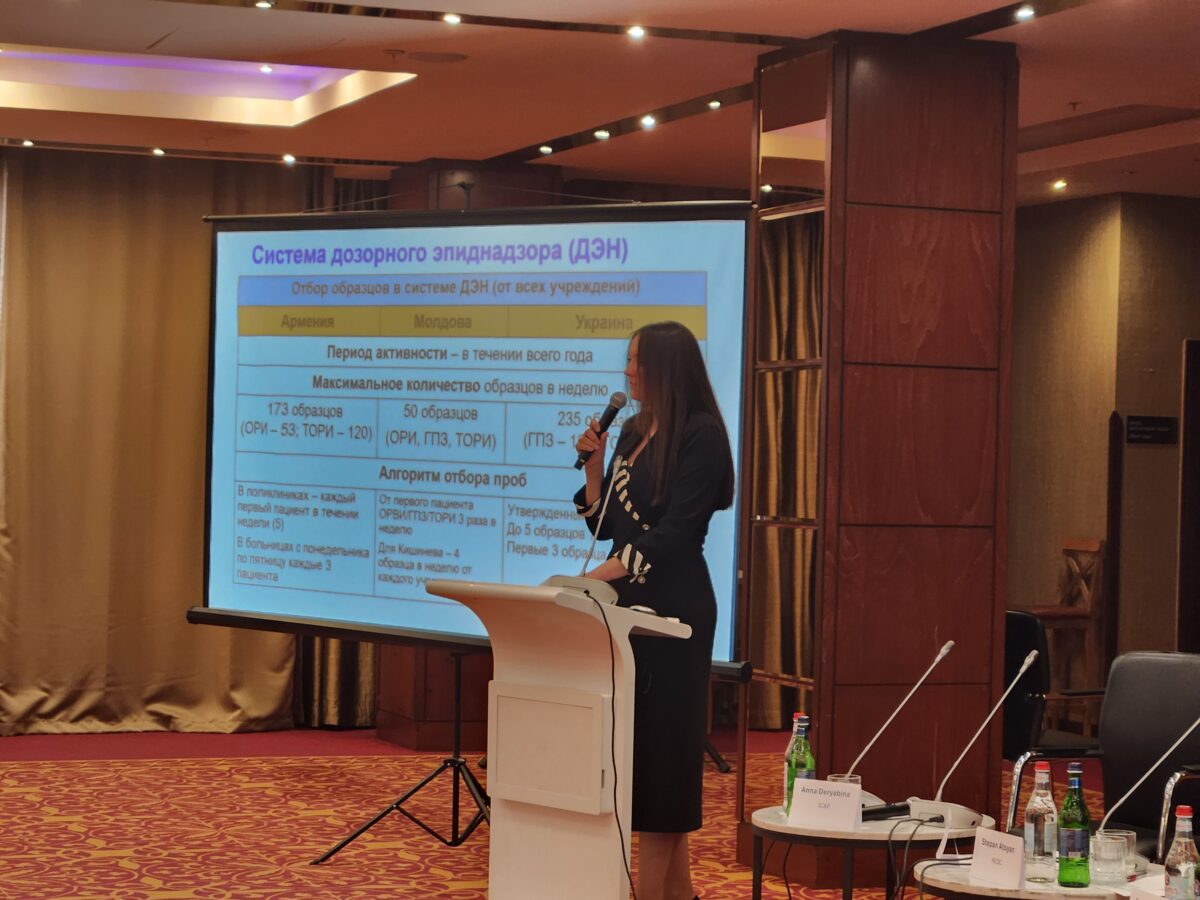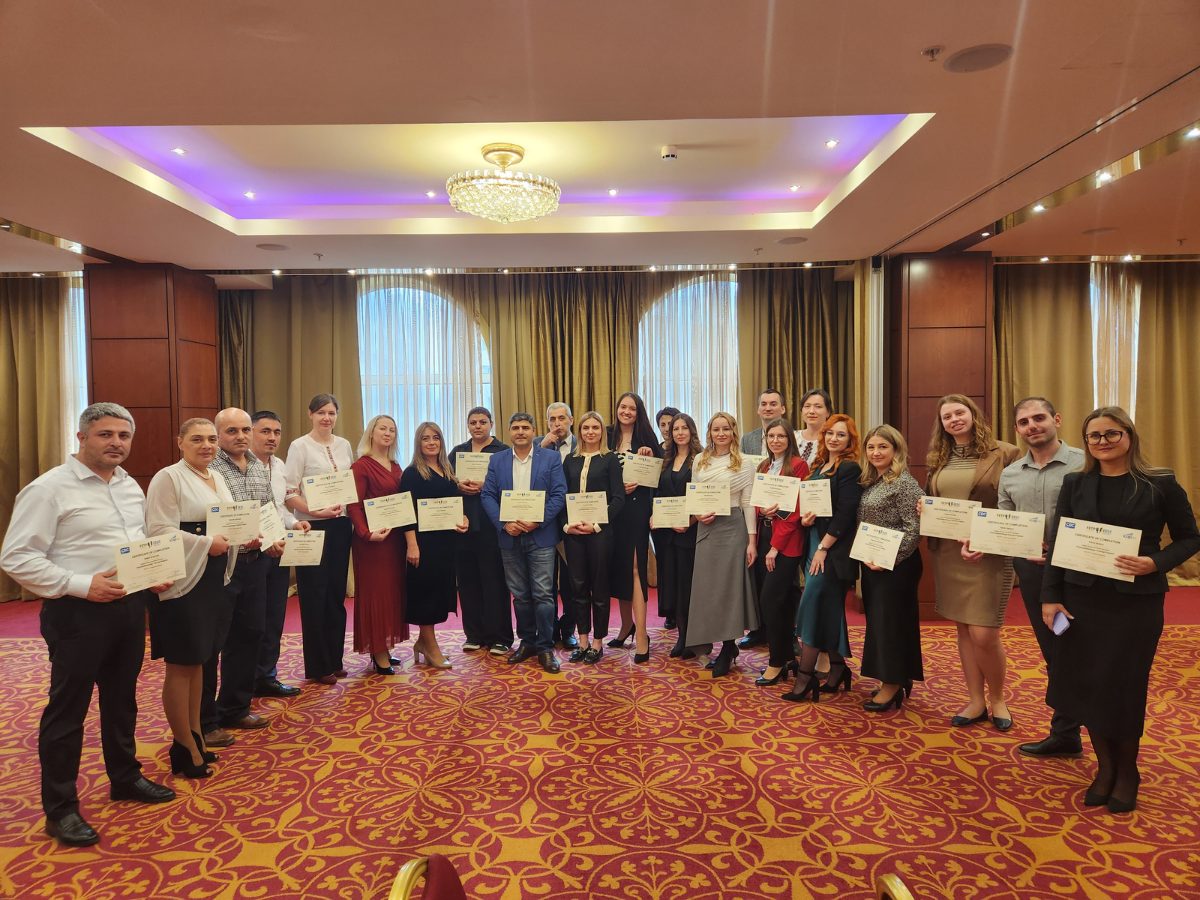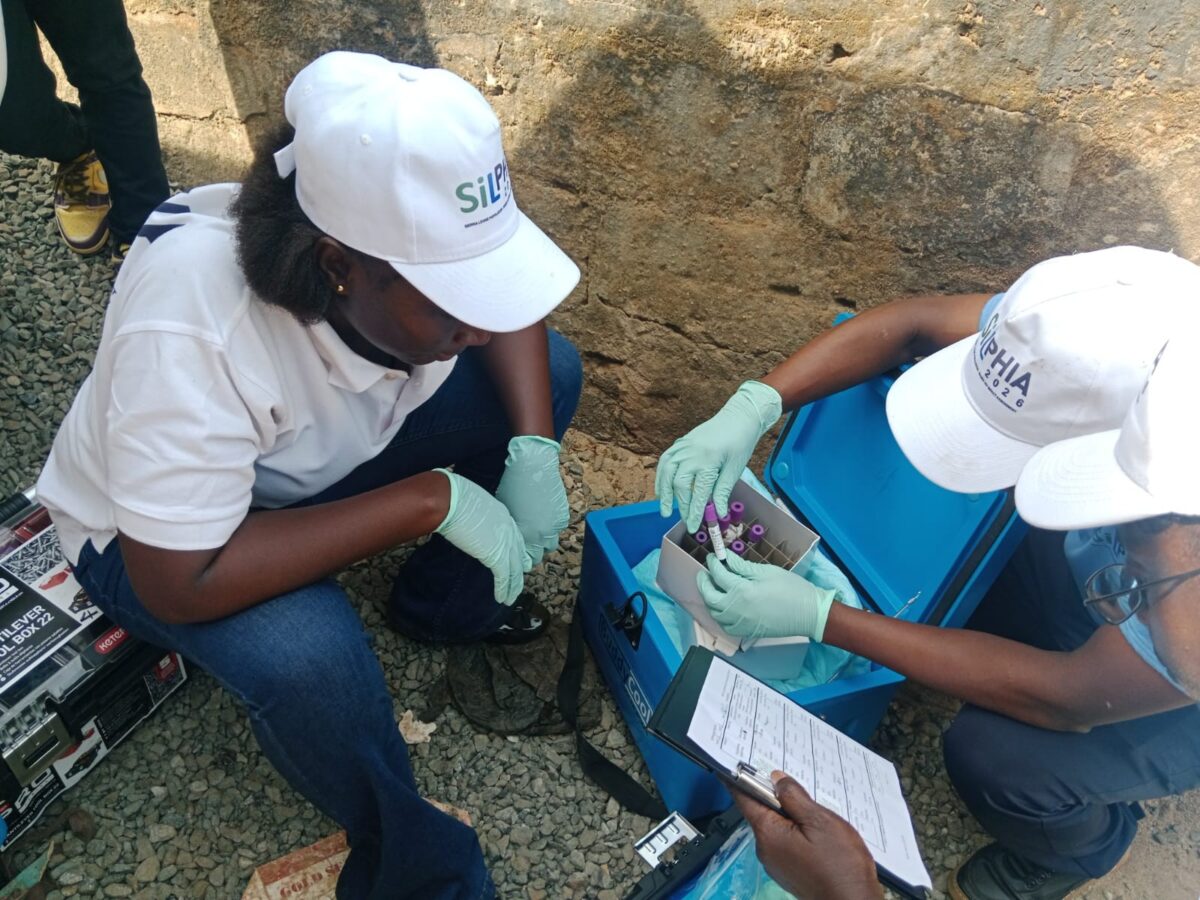On December 6, 2024, the Eastern Europe and South Caucasus (EESC) Field Epidemiology Training Program Intermediate (FETP-I) celebrated the graduation of its third cohort in Yerevan, Armenia. The milestone marks another step forward in strengthening public health systems across the region.
The EESC FETP-I is a 10-month learning-by-doing applied training program that prepares the public health workforce – and developing leaders – to investigate and respond to major disease outbreaks more effectively. Since 2022, ICAP at Columbia University, in partnership with the U.S. Centers for Disease Control and Prevention (CDC), has supported the training of mid-level public health and animal health specialists from Armenia, Azerbaijan, Moldova, Georgia, and Ukraine. By the end of 2024, 56 specialists and 30 mentors in total will have been trained through the program.
In December, the 15 graduates represented Armenia, Moldova, and Ukraine, and were supported by nine dedicated mentors from their respective Ministries of Health and Agriculture, and food safety agencies.
The graduates showcased their impact through two significant projects conducted across Armenia, Moldova, and Ukraine and presented during the graduation.
The first project, which was focused on understanding physicians’ knowledge, attitudes, and practices regarding the detection of Respiratory Syncytial Virus (RSV) in children under five. The investigation found that using a parallel testing algorithm – in which multiple tests are run at the same time – significantly improved RSV detection rates. FETP residents recommended implementing this algorithm across Ukraine and the Ministry of Health is working on its application.
The second project analyzed the low detection of Trichinellosis, a parasitic disease, by examining veterinarians’ awareness and behaviors to identify gaps in disease detection and response. The investigation outlined the need for raising veterinarians’ awareness on Artificial Digestion methodology, a method for detecting Trichinella larvae in meat, and to ensure availability of guidelines on Trichinellosis testing methodology in markets and slaughterhouses.
These initiatives underscore the vital contributions of the graduates to public health in the region.

Anastasiia Yurchenko, FETP-I graduate from Ukraine, presents results of the RSV investigation in Armenia, Moldova and Ukraine.
“Participating in the FETP program has been a transformative journey for me, both personally and professionally,” said Hayk Karapetyan, a FETP trainee from Armenia. “Despite challenges balancing work and training, the skills I gained gave me an edge, leading to leadership roles in two major programs. I am deeply grateful to the organizers, sponsors, mentors, and fellow participants for their support and the positive atmosphere throughout this experience.”
The graduation ceremony brought together leaders and partners from participating countries, including representatives from the U.S. CDC, the World Health Organization, and national public health and food safety agencies. Their remarks at the event highlighted the importance of the program in building a skilled workforce to tackle regional health challenges.

From left to right: Anna Deryabina, regional director of ICAP in Eurasia; Charles Vitek, U.S. CDC regional director for the EECA regional office; Alina Chirtoaca, FETP-I graduate from Moldova; Stepan Atoyan, director of NCDC Armenia.
“One of the most rewarding aspects of the program was the ability to translate field investigations into actionable recommendations,” said Oxana Constantinova, a mentor and former trainee of the program, during her remarks at the event. “For example, the work we conducted on antimicrobial resistance and disease surveillance among refugees in Moldova directly informed policy changes that have strengthened our public health response. These successes are a testament to the value of cross-sector collaboration and the dedication of public health professionals.”
The investigation Constantinova participated in revealed the need for updated legislation requiring justification for antibiotic prescriptions in Moldova to align with Ukraine and Armenia. Following the study, the Secretary of State of Moldova recommended forming a working group to amend the legislation accordingly.
This cohort’s accomplishments are a testament to the power of regional collaboration. As graduates of FETP-I, these public health specialists carry with them the tools and knowledge to strengthen disease surveillance and improve health outcomes across Eastern Europe and the South Caucasus.
About ICAP
A major global health organization that has been improving public health in countries around the world for two decades, ICAP works to transform the health of populations through innovation, science, and global collaboration. Based at Columbia Mailman School of Public Health, ICAP has projects in more than 40 countries, working side-by-side with ministries of health and local governmental, non-governmental, academic, and community partners to confront some of the world’s greatest health challenges. Through evidence-informed programs, meaningful research, tailored technical assistance, effective training and education programs, and rigorous surveillance to measure and evaluate the impact of public health interventions, ICAP aims to realize a global vision of healthy people, empowered communities, and thriving societies. Online at icap.columbia.edu








